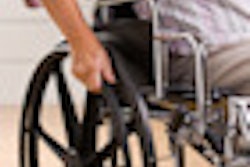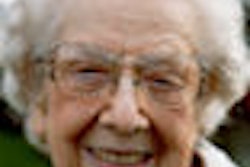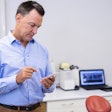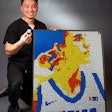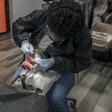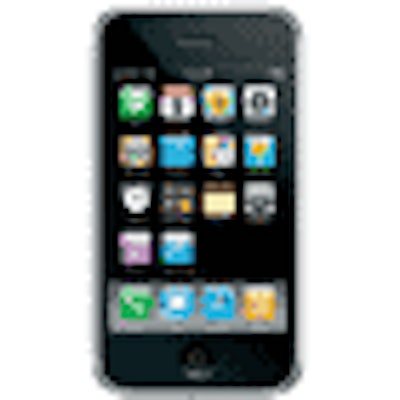
When Bia Kunze, D.D.S., realized that many of those in need of dental care in her Brazilian community -- hospitalized patients, nursing home residents, the elderly and disabled -- couldn't get to her office, she decided to "go mobile" with the help of an iPhone and a database app.
Dr. Kunze, a periodontist, specializes in treating patients with systemic problems such as diabetes and heart disease in and around the city of Curitiba in southern Brazil. In 2005, she closed her office and took her practice on the road, where she performs all procedures, especially periodontal and prosthodontic treatments.
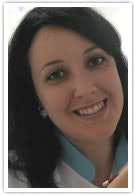 Bia Kunze, D.D.S. Image courtesy of John Reed, Media Relations, FileMaker.
Bia Kunze, D.D.S. Image courtesy of John Reed, Media Relations, FileMaker.She can do everything on a mobile basis except x-rays, which Brazilian law prohibits except in office or hospital environments, she told DrBicuspid.com. Her mobile dental kit includes whatever she might need for a checkup and cleaning -- from basic instruments to a small electric compressor that provides air pressure for water picks, vacuums, and drills. She even has a collapsible dentist chair.
"I do almost all of my work where the patients are, mostly in bed or wheelchairs," Dr. Kunze told DrBicuspid.com. "With my equipment I can set up to work wherever they are comfortable."
It's not a very well-known way to practice in Brazil, she added. "But there are many people who can't go to the dentist," she said. "They could be in pain or they could have trouble chewing food. I wanted to help them, make life easier for them."
Many of Dr. Kunze's patients have diseases that induce oral conditions. "I visit many cancer patients with mucositis; some can't even swallow," she said. "Some HIV patients with periodontal disease can't chew. Many have Parkinson's disease or have suffered strokes, and they have many cavities and root problems."
be as painful as a toothache.”
— Bia Kunze, D.D.S.
Treating mentally ill patients or those with Alzheimer's disease presents some of the biggest challenges, Dr. Kunze noted. "But every one is a different challenge," she said.
Dr. Kunze also volunteers her services at public and private institutions that house elderly people who have been abandoned. "Unfortunately, this is a sad reality in Brazil," she said.
The Brazilian government does pay for her services, which range from $150 to $400 per treatment. "But our country is very large, and there aren't enough dentists to provide care. And there are only a few dentists who offer specialized care outside the biggest cities," Dr. Kunze explained.
Traveling around the countryside to see different patients in various locations takes its toll. "I can't see more than two patients in two different places a day because it's exhausting," she said. "I arrive home very tired at night. But happy."
Technology helps
To help keep track of her practice while she is on the road, Dr. Kunze started taking advantage of technology -- notably a smartphone and the Bento 3 database app, which she uses to manage all her patients' records, including appointments, medical history, and dental diagrams.
"It's the easiest, most flexible solution for keeping records on the go," she said. "With Bento on the iPhone, I have everything I need to run my practice in my pocket."
Her database allows Dr. Kunze to quickly record the condition of her patients' teeth, including a detailed map of the mouth drawn with drop-down menus; each tooth has its own menu. The menus include options such as "tooth missing" and "inflamed gum," allowing her to track tooth and gum condition over time.
She also keeps track of her patients' personal information on her iPhone. "I keep a photo of the patient to help me remember who they are," Dr. Kunze said. "It's very important to be able to talk to them about their lives and really connect."
In addition to her practice, Dr. Kunze blogs about her experiences (www.garotasemfio.com.br; garota sem fio means wireless girl in Portuguese) and has started a second business: mobile consulting for professionals. She now travels around Brazil giving lectures, writing magazine articles, and appearing on television and radio. She has also entered the world of podcasts with Podsemfio, a program written entirely on mobile technology through mobile devices.
But Dr. Kunze says the best thing about her work is the personal contact with patients.
"Giving proper attention to people that need to just talk is as important as the dental procedures which I provide," she noted. "Many of my patients spend their days quietly, watching time pass by. They love when someone talks to them or simply listens to them. In my volunteer work, I do less dental work than chatting. Lonesomeness can be as painful as a toothache."
Copyright © 2010 DrBicuspid.com




